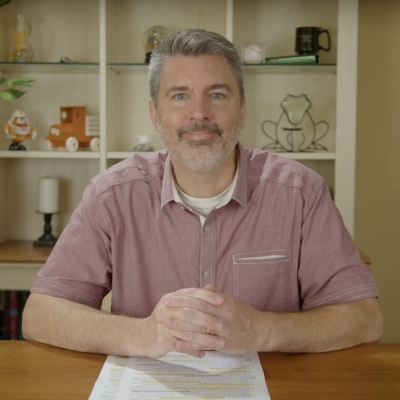10 Breakthrough Techniques That Improve Relationship Dynamics
Relationship dynamics can be transformed through proven techniques backed by specialists in couples therapy and psychology. This article presents ten breakthrough methods that address everything from communication barriers to emotional healing patterns. Expert insights reveal how understanding core needs, practicing effective repair strategies, and implementing structured dialogue can create healthier, more resilient partnerships.
The Assumption Audit Transforms Communication
One technique I've seen work wonders for relationships is what I call The Assumption Audit.
Here's how it works: I have couples identify and write down their top 3-4 assumptions about what their partner thinks, feels or wants in specific conflict areas. Then they read these out loud to each other - but here's the key part - the listening partner can only respond with either "accurate", "partially accurate" or "completely off-base" followed by what's actually true for them.
The results are often mind-blowing. I had one couple on the brink of separation where the wife assumed her husband's long work hours meant he was avoiding her and didn't want to be home. When she read this out loud he broke down. Turned out he was terrified of failing financially and thought providing abundantly was the only way he knew how to show love given his upbringing. He desperately wanted more time with her but felt trapped by his own belief system.
How it changed their dynamics:
The shift was immediate and huge. Instead of her feeling rejected and him feeling unappreciated they suddenly had a shared problem to solve together. The dynamic moved from adversarial to collaborative overnight. They started asking "what do you need?" instead of mind-reading. Their communication became curious rather than accusatory.
What makes this technique so powerful is that it exposes the invisible scripts we all run about our partners - scripts that are often wildly inaccurate but drive our behaviour completely. Once you realise how wrong you can be about what's happening in your partner's head you become permanently more humble and curious in your approach to conflict.
The couples who do this exercise rarely go back to their old patterns of assuming the worst.

Emotionally Focused Therapy Builds Secure Connections
Emotionally Focused Therapy has proven to be a game-changing technique in my work with couples. Instead of just addressing behaviors, this approach gets to the heart of relationships by identifying and reshaping emotional patterns that fuel conflict.
What makes this technique so powerful is how it creates space for authentic emotional expression. I guide partners to voice their true feelings—fear, sadness, or insecurity—rather than defaulting to reactive emotions like anger. This shift from "You never listen" to "I feel unimportant when I'm not heard" transforms accusations into vulnerable connections that build understanding.
The impact on relationship dynamics is profound. When partners feel truly heard and understood, empathy naturally develops. Emotional walls come down, and attachment bonds strengthen. Couples who once seemed locked in endless conflict cycles begin developing mutual respect and creating emotional safety together.
I've witnessed remarkable transformations as partners move from criticism and defensiveness toward compassion and trust. Their interactions change fundamentally—they become more attuned to each other's needs and develop healthier communication patterns. Research supports what I've seen firsthand: about 75 percent of couples experience improved relationship satisfaction through this approach, with nearly 90 percent reporting significant positive changes after therapy.
The long-term benefit is a relationship built on secure emotional connection rather than reaction patterns, creating resilience that serves couples through life's inevitable challenges.

Role Delineation Creates Relationship Clarity
One technique I've found incredibly effective with couples is to assign roles, what I call role delineation. This means assigning each partner clear responsibilities within the relationship, similar to how a business defines roles on a team. In a company, when everyone knows who is handling operations, who is leading strategy, and who is managing client relations, the business runs smoothly because there is accountability and clarity. The same principle applies in a relationship.
When couples explicitly assign roles, like who manages finances, who handles scheduling family commitments, or who takes the lead on planning social events, it immediately reduces friction. Each partner knows what they are responsible for, which minimizes the "I thought you were doing that" moments. It also builds trust because each person can rely on the other to handle their part without micromanaging.
The benefits go beyond logistics. Clear roles enhance connection because partners feel seen and valued for their contributions. Communication improves because discussions focus on collaboration rather than confusion. By taking care of practical matters, couples free up mental space for intimacy and shared experiences.
I have seen couples transform from feeling stuck and resentful to operating like a well-run startup, efficient, aligned, and energized. It is amazing how bringing structure into a relationship can actually make it feel more fluid and connected.

Couples Therapy Assistant App Extends Support
One breakthrough technique I've implemented is the Couples Therapy Assistant app, which provides clients with real-time therapy support between sessions when they most need guidance. This innovation addresses a critical challenge I observed in my practice: couples often struggled to apply therapy insights during actual conflicts that occur between our meetings. The app enables daily check-ins, instant support, and helps clients better process emotions and communicate effectively with both their partner and myself as their therapist. Clients report that this continuous connection to therapeutic support has significantly improved their ability to implement healthy relationship practices in their everyday interactions.
Understanding Core Emotional Needs Prevents Conflict
The most transformative breakthrough in my work comes from helping couples identify and understand each other's top three emotional needs from a framework of 13 core needs. Most couples enter conflict entirely self-focused, aware only of their own unmet needs in the moment. The breakthrough happens when they can name their partner's primary needs and - critically - connect those needs to recurring conflicts they've been having for years.
I have each partner independently identify their own top three emotional needs. The transformation happens when I have them review past hurts through the lens of their partner's emotional needs. Suddenly, conflicts that seemed irrational or overblown make perfect sense.
Let me give you a concrete example of how it changed the dynamic. A husband travels frequently for work. One evening he calls home and his wife doesn't answer. Hours pass. He calls again. She picks up, but after 60 seconds says, "I'm really busy, I don't have time to talk," and ends the call. When he later expresses how hurt he was, she's dismissive ("It was just one phone call, he's making too big a deal out of it").
But here's what she didn't understand: his primary emotional need is importance (the need to be prioritized and treated as valued). During our workshop, she learns not just that this is his need, but why: his parents consistently made him feel unimportant growing up. His father only wanted to talk about himself. His mother never called to check on him while he was away at college. Once she understood that her quick dismissal on the phone was recreating his deepest childhood wound, everything changed. She wasn't just being inconsiderate about a phone call; she was triggering a lifetime of feeling insignificant.
This is the paradigm shift: conflict stops being about winning the argument and starts being about protecting your partner's heart. The wife in this example went from defensive ("You're being too sensitive") to empathetic ("I never want to make you feel the way your parents made you feel").
What makes this technique particularly effective is that it's both diagnostic and prescriptive. It helps couples understand why they keep having the same fight, and it gives them a concrete action plan for prevention. That shift from pathologizing your partner to understanding them is where healing begins.

Practice Repair to Recover Quickly
Research has shown how long it takes for the couple to get back on track is more predictive of problems in a relationship. Actively practicing repair is one of the biggest steps to learning to trust that things can be rocky and you can recover rapidly.

IMAGO Dialogue Fosters Deep Listening
In my experience, the biggest source of friction in relationships is the deep human need to be heard and understood. When that doesn't happen, disconnection and resentment quickly begins to take root. One of the most powerful techniques I've used with couples is the IMAGO Dialogue, developed by Harville Hendrix and Helen LaKelly Hunt. It's a structured form of communication that teaches partners how to truly listen without defensiveness and reflect back what they've heard with empathy. When couples use this method, they often experience a profound shift from blame and reactivity to curiosity and understanding. It transforms their dynamic from "me versus you" into "us against the problem," rebuilding trust and emotional safety in the relationship.
Childhood Perspectives Shape Current Relationship Dynamics
One breakthrough technique that has made a significant difference in improving relationships between my clients is gaining a deeper understanding of the relational perspectives, traumas, beliefs that each other bring to this relationship from their childhood.
If there is the ability for each person to gain insight into where the other person is actually coming from, that is impacting on their current relationship, then they are able to firstly, not take it personally when these things come up, so they don't need to take a defensive space and then secondly, can be more empathetic and compassionate when things come up, usually what the other has never received and can then break their own patterns of reactive behaviour.
The dynamics change because of this ability to see where the other person is coming form and so de-escalates potential conflict before it arises or can bring emotions down when they are triggered, fending off unnecessary escalation.

Mirroring Dialogue Rebuilds Neural Empathy
One technique I frequently use with couples is a guided "mirroring dialogue" that taps into the brain's mirror neuron system to rebuild empathy.
In one session a wife and husband who'd stopped really listening to each other spent five minutes each verbalizing their partner's feelings and then confirming the accuracy of that reflection. I've seen cortisol levels drop as the anterior cingulate cortex engages, helping partners move from defensiveness into genuine curiosity. One lawyer started using it after an argument and told me she finally heard her spouse's fear instead of just bracing for attack, which shifted their nightly debrief from tension to real conversation.
Another couple who'd nearly given up on date night reported laughing together again after practicing mirroring for two weeks, creating new neuroplasticy in trust networks. The real power lies in slowing down, listening with intent, and reflecting back what you've heard—you'll be surprised how fast empathy rewires old patterns.
Confront Inherited Anger Patterns
To the partner that overly indulged in anger. (I got this from Terry Real).
I asked: "Who was angry in your family?"
"My dad."
I said, "Do you have a picture of your dad on your phone?"
"Yes."
"OK, You can get angry at your partner, but before you do, first you have to go in a closet, pull up the picture of your dad and say, 'Dad, me being like you is more important than the well-being of my partner.' After you do that, then you can rage."
My client got the point, and has significantly reduced their anger.



